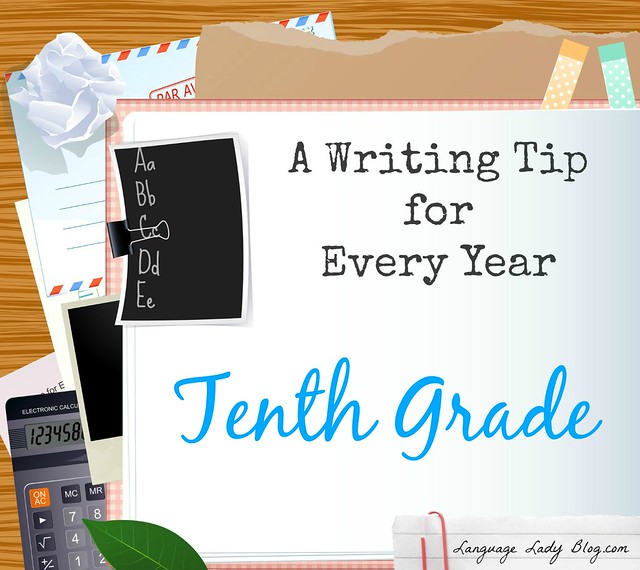Tenth Grade: Work on whatever type of writing is needed for your student next.
Usually at this level, a student has decided whether or not he will go to college. For the student who is planning to go to college, the writing pressure is really on by tenth grade—because of the dreaded SAT/ACT Essay (and the verbal part in general).
It is obvious that a college-bound tenth grader needs to work on the SAT or ACT Essay and the portions of an SAT/ACT preparatory book that will help him with the verbal parts of these exams.
So what types of writing should a trades student or non-college-bound writer work on? It is sometimes thought that if a student isn’t going to college, he doesn’t need that much writing instruction. However, there is so much writing that an adult needs in order to be an adult! Regardless of future plans, we want all graduates in our care to know how to write business letters, persuasive essays (and how to spot poorly-supported ones online), how to write/create stories for their own children or for those who might work with children in the future; how to write/give instructions (for those who might have employees some day; for those who might be parents someday; and for those who might want to write out recipes or other instructional types of writing); and much more.
These types of writing require many of the skills that college-bound students need to learn: persuasive writing, quotation inclusion, story plot and character development, proper paragraph formation, etc. When I think of “consumer writing,” I think of recipe, instructional, story, blog, retelling (Bible lessons), devotional, research (original documentation and studies—not blog reading!), letter writing. And more! Detailed writing lessons are not only for the college-bound student!
Additionally, there is the possibility that the student might change his mind/occupation goals in the next couple of years. So there is no reason to stop writing!
Note: The trades type student will need to touch on many different types of writing projects (as opposed to spending a great deal of time on one or two types). Check out my first semester books up to and including Meaningful Composition 9 I. These books have various types of projects (and many “how to” lessons) as opposed to second semester books, which often focus on a certain type of writing. Go to here to see (and print/use) two week samples of my Meaningful Composition series.. Also, keep your eyes on my stores (Teachers Pay Teachers, CurrClick, Teacher’s Notebook, and our own store, Character Ink Press) as I put up various writing project downloads that are in my longer books.




